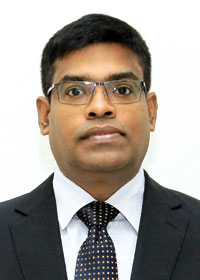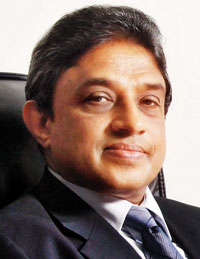News
Driver fatigue could impair reactions on the road
View(s):By Kasun Warakapitiya
Driving under fatigue or stress, or after medication are some of the conditions that need to be avoided as it leads to slow reactions, experts say.

Dr. T. Sivakumar
A delay of seconds could make the difference between life and death, as fast decision making and quick reactions are needed to avoid situations which could lead to accidents.
Experts said drivers should be well rested, mentally prepared, and avoid the influence of alcohol and drugs.
They said drivers and passengers should be taught how to react to an accident or a crisis situation.
Apart from that, state and private public transport operators should consider improving working conditions of drivers, recruit well-trained drivers as conductors and train the conductors already in service to drive buses, so that they can take turns driving.
Experts pointed out governments and authorities usually react after incidents. They are not proactive about ways to reduce accidents. Views are shared but little is implemented, they said.
An expert on motor traffic, transport and road safety, emeritus professor of Moratuwa University, Amal Kumarage told the Sunday Times that many road safety professionals had been talking about accident prevention for decades, yet no authority had taken action.
He said that proportionally more money should be allocated for safety to ensure the well-being of drivers, passengers, and pedestrians.

Amal Kumarage
“Other countries invest more on safety compared to building roads, yet in Sri Lanka physical infrastructure development is prioritised due to political reasons, such as to maintain popularity,” he said.
Prof Kumarage emphasised that when major accidents occur, an analysis should be done on contributory factors to avoid future accidents. Our approach has been to mostly blame the driver and cover up the many lapses in the administrative system that should ensure safety of all road users, he said.
Experts also stressed that fatigue and driving after medication affect cognition and reaction speed of drivers and lead to accidents.
Dr. T. Sivakumar, a senior lecturer at the department of transport management and logistics engineering, faculty of engineering, University of Moratuwa said the reaction time of a driver plays a key role in avoiding accidents.
He explained when a driver is fatigued, overworked or under a medication (drugs which can cause drowsiness), that can impair their reaction time, focus, and decision-making, the stopping distance increases, and leads to accidents.
He said a driver should be well rested. For trips longer than 4–5 hours, he suggests a longer break (30–60 minutes) for meals, stretching, and rest. A driver should not work more than 8–10 hours a day unless an alternate driver is available.

Kumari Jayaratne
Dr Sivakumar said privately-owned and state providers of long distance bus services should recruit skilled drivers as conductors to share driving duty. The National Council for Road Safety (NCRS) said an independent and thorough investigation should be held to understand causes and contributory factors and learn how accidents can be avoided.
Chairman of NRCS Kumari Jayaratne said priority is given to making drivers and passengers aware of how to act in a crisis.
“Simple actions as finding an emergency exit, staying calm as well as maintaining communication between driver and passengers are necessary to avoid panic,’’ she said. Public awareness would be raised about emergency exits, and other safety measures.
| SLTB to move forward with new proposals Sri Lanka Transport Board (SLTB) has a string of proposals to improve the safety and quality of passenger buses, a senior official said. He said in addition, the proposals include methods to improve communication and interaction between passengers and drivers. He said since the government had decided to only import passenger transport-specified buses after January 2026, the SLTB would be renovating and carrying out maintenance work on the existing fleet of buses while gradually replacing them with newly imported ones. The SLTB also hopes to introduce a social media app for passengers to provide feedback. | |
The best way to say that you found the home of your dreams is by finding it on Hitad.lk. We have listings for apartments for sale or rent in Sri Lanka, no matter what locale you're looking for! Whether you live in Colombo, Galle, Kandy, Matara, Jaffna and more - we've got them all!

